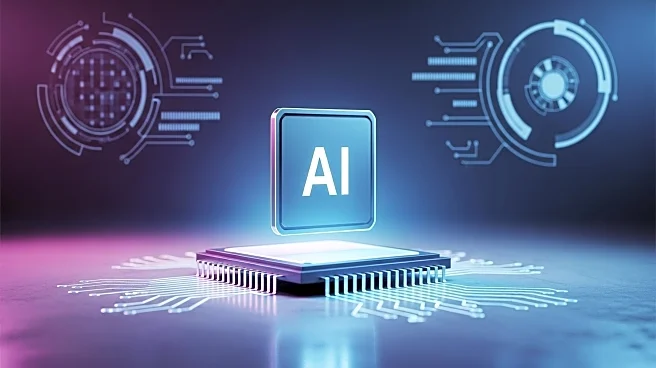What's Happening?
Anthropic, a San Francisco-based AI company, has agreed to a $1.5 billion settlement with authors over allegations of copyright infringement. The lawsuit accused Anthropic of using copyrighted works to train its AI assistant, Claude, without permission. The settlement, pending judicial approval, will compensate authors $3,000 per work for approximately 500,000 books. This case is significant as it sets a precedent for AI companies regarding the use of copyrighted materials. Other tech companies, including Meta and OpenAI, face similar lawsuits. The settlement highlights the ongoing tension between AI development and intellectual property rights.
Why It's Important?
The settlement is a landmark in the ongoing debate over AI and copyright law. It underscores the need for AI companies to address intellectual property concerns and compensate creators for the use of their work. This development could lead to increased scrutiny and legal challenges for AI companies, potentially affecting their operational costs and business models. The case also emphasizes the importance of ethical AI development, balancing innovation with respect for creators' rights. As AI technology continues to evolve, the industry may face more stringent regulations and legal obligations.
What's Next?
If approved, the settlement will resolve the remaining claims against Anthropic. The case may influence other pending lawsuits against AI companies, prompting them to consider similar settlements. The legal landscape for AI and copyright is likely to evolve, with potential implications for how AI systems are trained and developed. Stakeholders, including tech companies, authors, and legal experts, will closely monitor the outcome and its impact on future AI-related litigation. The settlement may also encourage dialogue between AI developers and content creators to establish fair compensation practices.
Beyond the Headlines
The settlement raises ethical questions about the use of copyrighted materials in AI training. It challenges the notion of 'fair use' in the digital age, where AI systems require vast amounts of data. The case highlights the need for clear guidelines and policies to govern AI development, ensuring that creators are fairly compensated. It also reflects broader societal concerns about the impact of AI on creative industries and intellectual property rights. As AI technology becomes more pervasive, these issues will likely become more prominent in public discourse.










